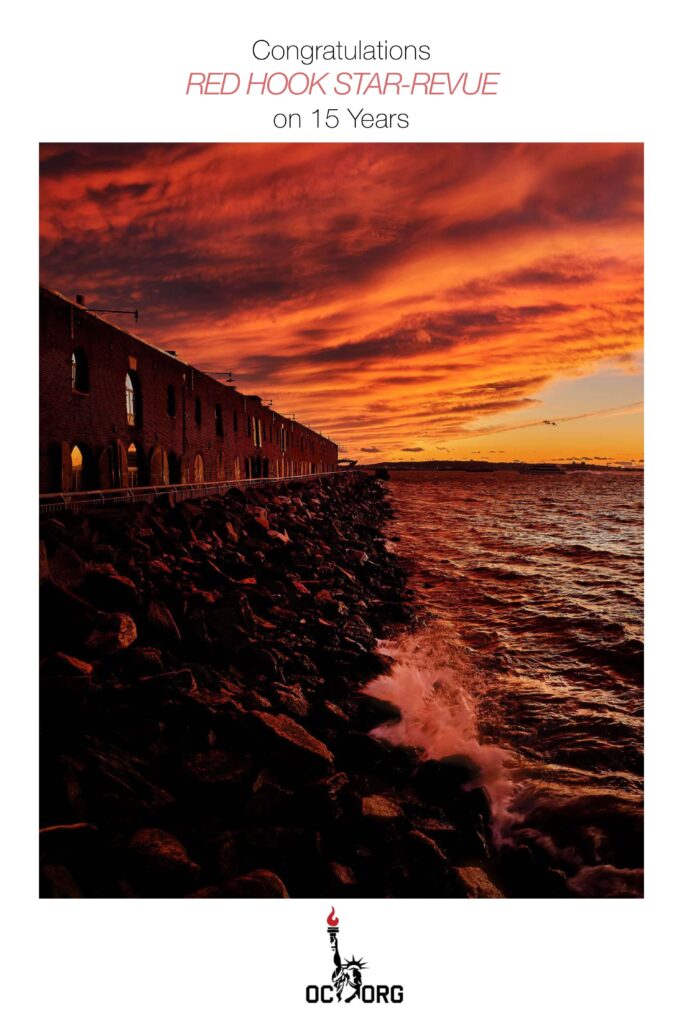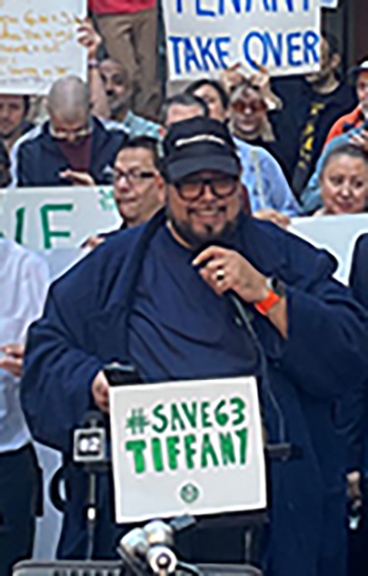More than a month after the killings of Breonna Taylor, George Floyd, and Ahmaud Arbery, worldwide protests against police violence continue. New and old cases of police killings of civilians are gaining and regaining national attention. In the effort to deconstruct systemic police violence, New York seems to be making some strides with relatively aggressive actions. On June 12, 2020, Governor Cuomo signed a 10 bill police reform packet and a 4-part executive order, requiring all police departments to make measurable, legal changes to policing by April 1, 2021, or face risk of defunding.
In an interview with the Star Revue, Brandon Hicks, Governor Cuomo’s Director of African American Affairs, describes what Cuomo’s executive order signifies in the fight against police violence.
The phone rings, Brandon Hicks picks up, I’ve caught him as he’s preparing lunch. The interview begins.
Roderick: Mr. Hicks, Thank you for taking the time out to speak with me. Regarding police reform, What was your role in assisting or influencing Governor Cuomo?
Hicks: Thanks for having me. My role is to be a liaison between activists, black organizations, civil rights organizations, and the Governor’s office. During the height of the protests, I was in communication with the Chief of Staff and policy teams in our office. It’s my job to make sure the sentiments and demands of the people are communicated.
Roderick: What were some of the things you felt were most important to make a positive change?
Hicks: Several things, but definitely impartial prosecution. Before working with Governor Cuomo, I worked with National Action Network alongside Reverend Al Sharpton. One of the key things that we were pushing was impartial prosecution across the country. In New York, I think we’ve got that now with these new laws.
Roderick: What can you tell me about 50a, and why was repealing it so important?
Hicks: 50a was a piece of legislation that gave protection to police officers by masking their record, it didn’t provide transparency. Now, you can look up the record of your local police officer who may have previously done some things that are inappropriate.
Roderick: There’s been much talk about defunding the police, mostly reallocation of budgets for other programs. How does Governor Cuomo’s administration view defunding?
Hicks: Its a 4 part process. First, police departments must adopt a plan by April 1st, 2021 to be eligible for future state funding. They must certify that they have engaged stakeholders in the public and developed a process on better-policing strategies and tools. The second thing is to present a plan to the Head of Police. Third, they must take into consideration public comments and feedback. Lastly, local legislative bodies need to approve the reforms by April 1st, 2021, or the NYPD will face ineligibility for future funding.
Roderick: Regarding the relationship between the community and elected officials, what needs to improve?
Hicks: I think its really important for people to have a grasp on who their elected officials are what power those elected officials have. On the state level, the legislature and the Governor have done a lot. However, the funding issues happen on the local level. This fight isn’t over. People need to go to their local officials, city council members, mayors, police departments, and keep pushing for change.
Roderick: Mr. Hicks, you usually don’t see politicians be this aggressive on police brutality. Some argue that this is just a political response to the outrage. What do you say to that?
Hicks: This wasn’t a Brandon thing or even just the Governor, the people who need to get the most credit are the protestors and the advocates. However, these issues have been very important to Governor Cuomo. In 2015 prior to my joining his office, he signed an executive order establishing a special prosecutors office that would investigate police killings, though that office wasn’t permanent. With the signing of this new bill, there will be a permanent office. I’m very proud of that.
Roderick: In your experience, what are some things that work as people continue to fight for change?
Hicks: What works is having policy to go with your demands. Sometimes when people are in the streets they have slogans without policy demands. You can’t build a movement off slogans and hashtags alone. What made this moment work was activists working alongside the protesters and consciousness-raising on social media is important, but you need to engage policymakers.
Roderick: Sometimes these issues seem larger than life, how do you stay encouraged and how can people get involved?
Hicks: Zora Neal Hurston has a quote that I really love. She says, if you’re silent about your pain they’ll kill you and say you enjoyed it. I think it’s important for people to speak up. You can find your people and speak up. I would definitely advise folks to join organizations that are doing the work, Black Lives Matter, NAACP, Urban League. There are so many organizations that do the work of advocacy.
Roderick: What are your hopes for the future of policing?
Hicks: In an ideal world, police are the people you call when you’re in danger and they wouldn’t put you in more harm. Very few people want a world without police, but people don’t want to be policed unfairly and unjustly.
On June 15, 2020, Governor Cuomo signed 3 additional laws requiring officers to do the following: report a weapon discharge within 6 hours, track arrest data, including race and ethnicity, provide medical and mental health assistance for those in need.
While Cuomo’s recent efforts may be a step in the right direction, some families who’ve experienced police violence have some doubts. Constance Malcolm, mother of slain teenager Ramarley Graham, spoke out.
“If it wasn’t for the justice committee, families, and community uproar, nothing would have happened. We want budgets to go to other areas, such as mental health, these cops aren’t trained for this. They’re’ killing us and getting away with it. This is why we are calling for a billion-dollar budget cut from for the NYPD,” said Malcolm.
While New York City Mayor Bill De Blasio, has agreed to make unspecified budget cuts and reallocations to the $6 billion NYPD budget, he currently opposes the billion-dollar budget cut proposal.
NYPD Commissioner Dermot Shea has expressed public concern over the defund movement, at times firing back at both the Governor and Mayor. “I’m concerned about the defund rhetoric. I don’t think people know what’s happening on the ground,” says Commissioner Shea in an interview with News 4. Though he admits the NYPD and other city departments were likely to experience budget cuts anyway, due to the current fiscal crisis.
Many Americans share the same hopes as Brandon Hicks, for better policing and systemic change. In New York, the next nine months will reveal the effectiveness of the new police reform laws, as well as the NYPD’s and city official’s willingness to make serious changes.
Roderick Thomas is an NYC based writer, filmmaker, and Host of Hippie By Accident Podcast.
Instagram: @Hippiebyaccident, Email: [email protected], Site: roderickthomas.net
Author
Discover more from Red Hook Star-Revue
Subscribe to get the latest posts sent to your email.










